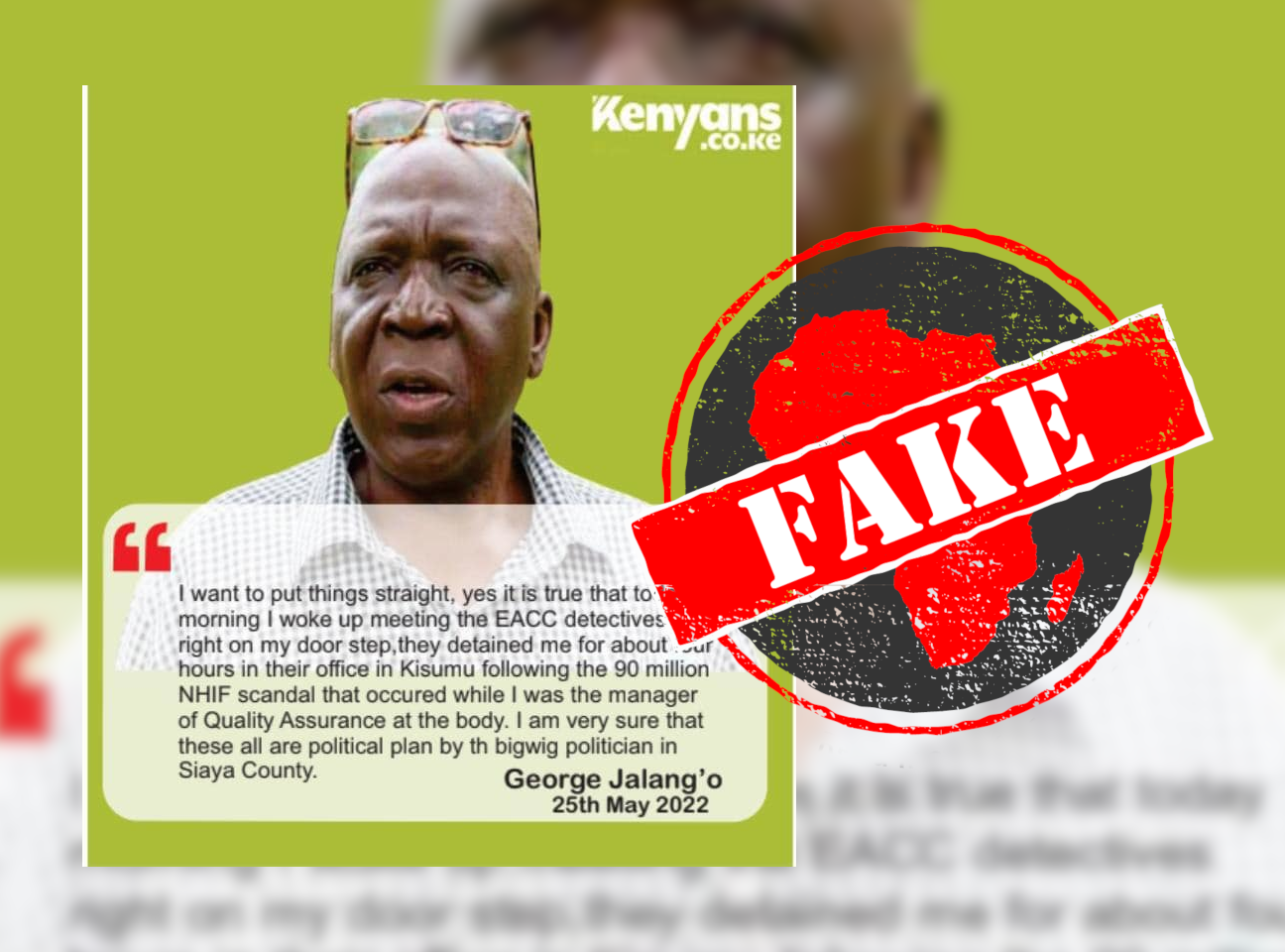George Jalang’o, a controversial candidate in the Gem constituency parliamentary seat race ahead of Kenya’s August 2022 elections, was detained by the country’s anti-corruption agency.
That’s according to graphics circulating on Facebook in May 2022. The constituency is one of six in the eastern Kenyan county of Siaya.
The graphics quote Jalang’o as saying: “I want to put things straight, yes it is true that today morning I woke up meeting the EACC detectives right on my doorstep, they detained me for about four hours in their office in Kisumu following the 90 million NHIF scandal that occurred while I was the manager of Quality Assurance at the body.”
The quote continues: “I am very sure that these all are political plan by th bigwig politician in Siaya County.”
There are several things to explain here.
-
The EACC is Kenya’s Ethics and Anti-Corruption Commission.
-
The NHIF is the National Hospital Insurance Fund, a statutory health insurer.
-
Kisumu is a Lake Victoria port city in Kisumu county, which borders Siaya county to the southeast.
The graphics show a photo of Jalang’o, and claim he was quoted on 25 May 2022. One version carries the logo of the news website Kenyans.co.ke, and another the logo of the local channel TV47.
But did Jalang’o really admit to being detained by the EACC? And did Kenyans.co.ke and TV47 publish graphics quoting his admission? We checked.

‘Political propaganda’
In an election year, news of a politician being held by the anti-graft agency would hit the headlines in Kenya. But Africa Check was unable to find any credible news reports of Jalang’o being detained by the EACC.
The graphics don’t appear anywhere on the Facebook pages of Kenyans.co.ke or TV47.
On 25 May, the EACC posted the graphic on its verified Twitter account – stamped “FAKE”.
“FAKE NEWS: Our attention has been drawn to a poster circulating online, in which it is alleged that EACC Detectives in Kisumu arrested and detained one George Jalang’o. Such events did not occur. The allegations constitute political propaganda which should be ignored,” the tweet reads.
Republish our content for free
For publishers: what to do if your post is rated false
A fact-checker has rated your Facebook or Instagram post as “false”, “altered”, “partly false” or “missing context”. This could have serious consequences. What do you do?
Click on our guide for the steps you should follow.
Publishers guideAfrica Check teams up with Facebook
Africa Check is a partner in Meta's third-party fact-checking programme to help stop the spread of false information on social media.
The content we rate as “false” will be downgraded on Facebook and Instagram. This means fewer people will see it.
You can also help identify false information on Facebook. This guide explains how.


Add new comment